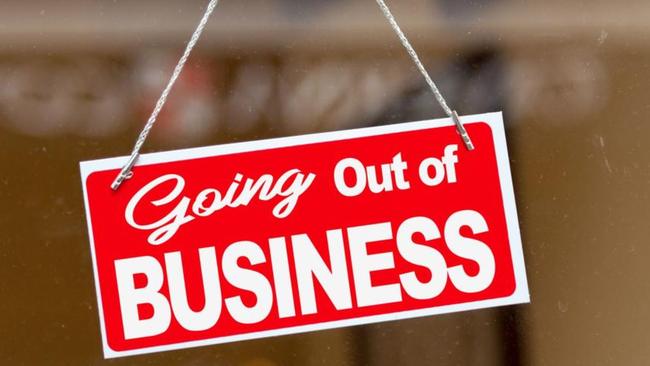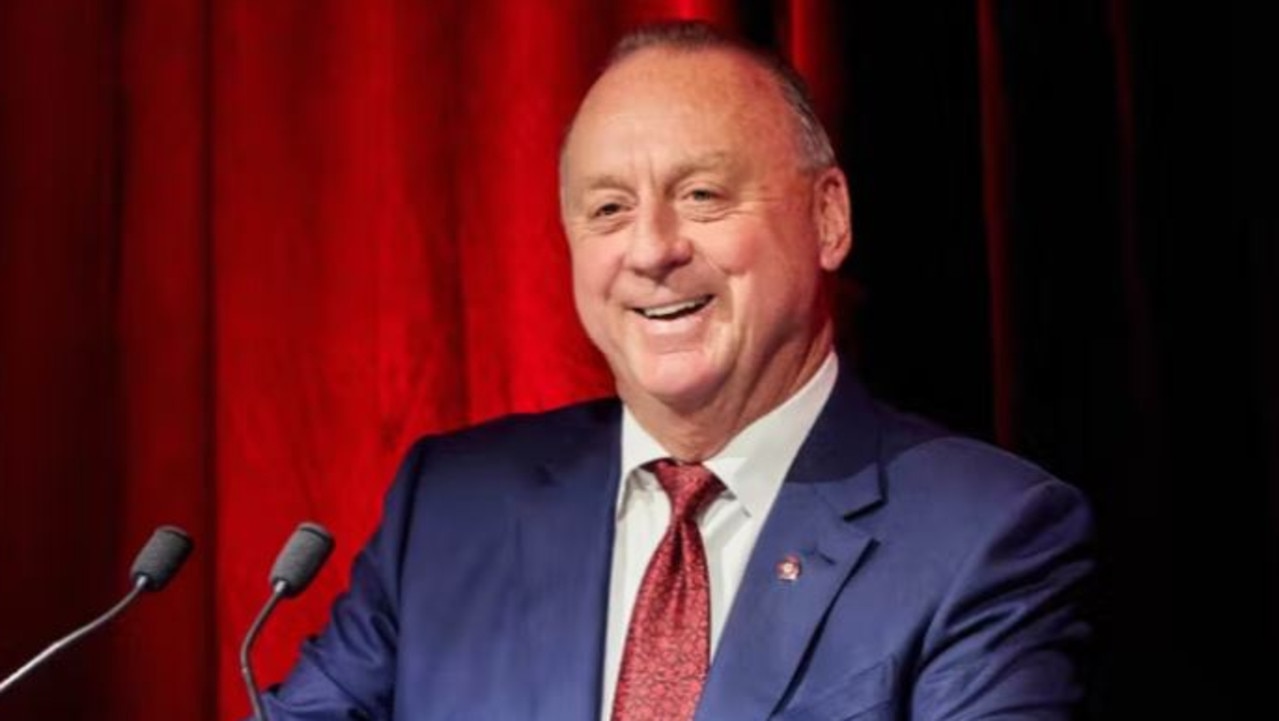Business collapses soar: Victoria now the nation’s pressure point as NSW failures slow
Australia is facing its worst year for business collapses, with Victoria leading the surge as rising costs and a controversial land tax hike squeezes firms.

Business
Don't miss out on the headlines from Business. Followed categories will be added to My News.
Victorian businesses are facing more pressure than those in any other state, insolvency experts warn, as business failure rates surge faster than anywhere else on the mainland due to cost-of-living pressures, elevated operating expenses and a controversial land tax hike.
Business failures nationally have already surged by 45 per cent this financial year to 11,162 as of April 6, surpassing last year’s record total of 11,053 with three months remaining in the fiscal year, according to the Australian Securities & Investments Commission.
Industry leaders warn insolvency appointments could top 15,000 this financial year, with interest rate cuts from the Reserve Bank unlikely to stem the tide of failures until at least next year.
While NSW continues to make up the lion’s share of insolvency appointments, thanks to being home to significantly more businesses than the rest of the country, its growth rate is now well below the national average — a sign that conditions are easing in the nation’s most populous state.
Among the biggest collapses this year, retail giant Mosaic Brands — owner of Millers, Rivers, Crossroads, Katies, Noni B and Autograph — was wound up earlier this month after administrators failed to find a buyer, following a voluntary administration triggered by $318m in debt.
The 2024 financial year had a record 11,053 insolvencies, surpassing the previous high set in 2012 during the Global Financial Crisis. There were 3.47 million registered businesses at the end of 2024 compared to 3.23 million in 2023.
Victoria has recorded the fastest increase in business failures among the mainland states, with insolvencies jumping 59.3 per cent to 3158 appointments in the year to March 31. Its previous record for a full financial year was 2863, set last year.
KPMG turnaround and restructuring partner David Hardy said Victoria was under more pressure than any other state, particularly for businesses exposed to property and construction.
“Victoria is a more challenging market right now. Rising land taxes and high interest rates have made it particularly difficult for property and construction businesses to stay afloat,” he said.
“When I talk to clients, the sentiment is noticeably more negative compared to other states. While places like NSW are still seeing resilience in some sectors, Victoria is feeling the combined weight of higher costs and weaker consumer demand more acutely.“
The state has seen high-profile collapses, including popular Australian footwear brand Wittner — founded more than a century ago — which collapsed into administration earlier this month.
NSW recorded the highest number of insolvencies at 4235, reflecting its status as the nation’s business capital.
However, its 28.7 per cent growth was the slowest of any state and significantly below the national average of 45 per cent.
The smaller states and territories recorded sharper percentage rises, albeit from a lower base. In the Northern Territory, insolvencies rocketed by 97 per cent to 65 in the first three quarters of the fiscal year. Tasmania recorded an 81 per cent uplift to 105, while the ACT saw numbers rise 62.9 per cent to 202.
In South Australia, insolvencies have jumped 54.5 per cent to 476 as of the March quarter after several high-profile business failures including milk producer Beston Global Food Company, which was wound up after efforts to find a buyer during voluntary administration proved unsuccessful.

Queensland had the third-highest overall number of insolvencies, with 1971 appointments as of March 31 — a 37.4 per cent jump on the previous period.
Growth rates have slowed in recent months, after insolvencies rose 51.4 per cent in the first six months of the fiscal year.
McGrathNicol restructuring partner Matthew Caddy said it would take a meaningful lift in consumer confidence, particularly amid ongoing geopolitical uncertainty, before business conditions began to improve.
“Businesses need confidence to invest, but right now there’s a real concern that any investment might not pay off,” he said.
“It’s not just one sector under stress — it’s right across the whole economy and there are no green shoots.”
Hospitality businesses are closing down faster than any other sector with collapses up 57 per cent to 1845 so far this financial year. Construction remains the largest sector for insolvency appointments, although the growth rate has moderated to 24 per cent, compared with 34.1 per cent between 2023 and 2024. Retail trade insolvencies have risen 17.5 per cent.

Veteran Queensland builder Stokes Wheeler entered liquidation earlier this month, with debts topping $20m, after a rescue plan from its directors failed to materialise. The company, which has offices in Brisbane and on the Gold Coast, had entered voluntary administration in February following multiple loss-making projects over the past five years.
Embattled casino operator Star Entertainment narrowly avoided collapse after US group Bally’s Corporation swooped in with a $300m rescue package. Star had been in financial strife for the past year, bleeding substantial sums of money as earnings plunged.
Rex — Australia’s largest regional airline — fell into the hands of administrators last year after a failed attempt to compete head-on with Qantas and Virgin Australia on major capital city routes ended in insolvency. Labor has vowed to underwrite future regional flights, with a buyer yet to be found.
Originally published as Business collapses soar: Victoria now the nation’s pressure point as NSW failures slow



